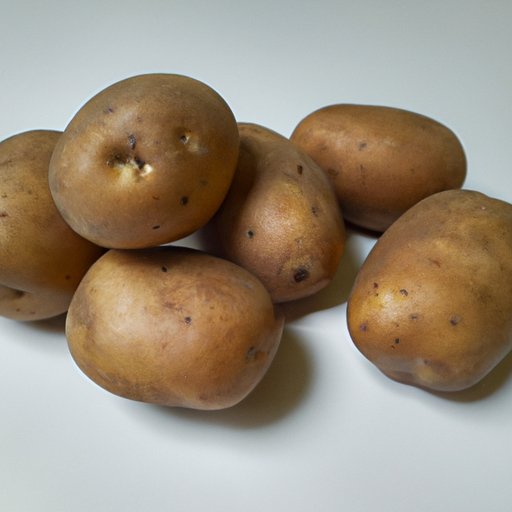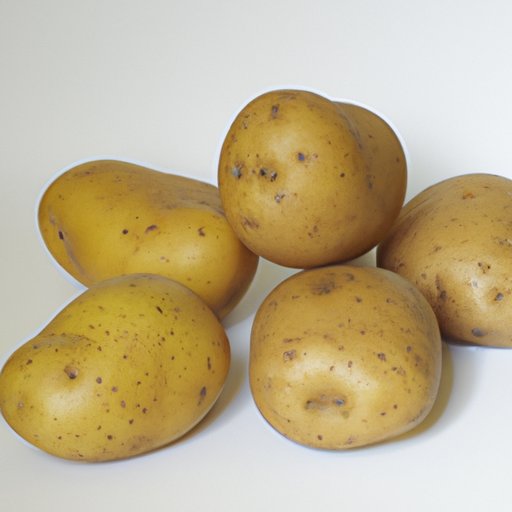Introduction
The russet potato is one of the most widely cultivated varieties of potato, and is incredibly popular due to its versatility and flavor. It is recognizable by its large size, brownish-red skin, and white flesh. But what makes this type of potato so special, and is it actually good for you? Read on to learn more about the nutritional benefits of russet potatoes and how they can be incorporated into a healthy diet.

Nutritional Benefits of Russet Potatoes
One of the main benefits of russet potatoes is their relatively low calorie content. A medium-sized russet potato contains just 163 calories and 0 grams of fat, making them a great addition to any healthy diet. In addition, they contain 3.8 grams of fiber, which helps to keep you feeling full for longer and can help to reduce cholesterol levels.
But how does the nutritional value of russet potatoes compare to other types of potato? Studies have found that sweet potatoes have higher levels of essential vitamins and minerals, such as vitamin C, magnesium, and potassium. However, russet potatoes are still a great source of these nutrients, providing 11% of your daily recommended intake of vitamin C, 10% of your magnesium needs, and 8% of your potassium needs.
The Role of Russet Potatoes in a Healthy Diet
Are russet potatoes good for weight loss? The answer is yes! As previously mentioned, they are low in calories, making them an ideal choice if you’re trying to lose weight. Additionally, the high fiber content can help to keep you feeling fuller for longer and reduce cravings, making it easier to stay on track with your diet.
In terms of vitamins and minerals, russet potatoes are a good source of several important nutrients. They provide a range of B vitamins, including thiamin, riboflavin, niacin, folate, and B6. These vitamins are essential for energy production, metabolism, and maintaining a healthy nervous system. Additionally, russet potatoes contain iron, magnesium, phosphorus, potassium, and zinc.
Preparation Methods
When it comes to preparing russet potatoes, there are a few different methods to choose from. Baking is a popular option, as it requires minimal effort and produces a crispy, flavorful result. Boiling is another option, and is a great way to retain more of the potato’s nutrients. Finally, frying is a tasty option, but should be avoided if possible due to the additional fat and calories that it adds.
Conclusion
Overall, it’s clear that russet potatoes can be a great addition to a healthy diet. They are low in calories and contain a range of vitamins and minerals that are essential for optimal health. In terms of preparation, baking and boiling are two of the best options for maximizing the nutritional benefits of russet potatoes.
(Note: Is this article not meeting your expectations? Do you have knowledge or insights to share? Unlock new opportunities and expand your reach by joining our authors team. Click Registration to join us and share your expertise with our readers.)
